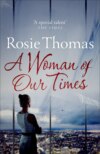Kitabı oku: «The Potter’s House», sayfa 3
Xan moved into the lantern light beside her, removing empty wine bottles and putting a full bottle of Metaxas in their place.
‘None for you,’ he teased with his mouth close to her hair, meaning that he could see she had drunk enough.
‘Oh, go on. Just one. You never know what it might lead to, if you’re lucky,’ she whispered back.
Later there was dancing. Christopher played the guitar and the English couples swayed and jigged under the branches of the tree, and then draped arms over one another’s shoulders and pointed their toes in a wobbly imitation of Xan, at the end of the line, when he led the Greek dance. He was a supple, stately dancer and the guests looked like a row of jerky puppets as they tried to follow his steps.
Olivia was like the maypole in the middle with two ribbons twisting around her.
‘I can’t,’ she protested. ‘My legs don’t work at this time of night.’
‘Legs like yours don’t need to,’ Brian Darby murmured in the knowledge that his wife was out of earshot.
And at the same moment at the far end of the line it was Mrs Darby who spotted the bear-like man shambling at the rim of the lantern light. She crooked her elbow gaily to indicate that he should join in.
At once he lurched towards her and locked both arms round her neck to stop himself from falling flat on his face. As soon as she got the full blast of his breath Mrs Darby changed her mind about the invitation to dance. She tried to shake him off and pull herself away, but the line of dancers reeled the two of them along like fish on a hook. All the other guests thought it was a joke and shouted encouragement, then hooted with laughter as their legs tangled. The man pressed his stubbled face closer, trying for a kiss, and the woman screamed. A little bullet of shock discharged itself into the atmosphere.
Xan had already disentangled himself from the staggering bodies. He ran to pull the man off.
‘Oh, bollocks,’ Christopher muttered and flicked his cigarette past the tamarisk tree before going to help.
‘Yannis, Yannis,’ Xan shouted.
Christine Darby was pinned on her back by an inert body. Her arms and legs flailed helplessly. Xan hauled the man up by his shirt, exposing a thick mahogany-brown torso matted with black hair. The man muttered thickly as Christopher added his efforts to Xan’s. Together they propped him back on his feet while Mrs Darby gave a series of thin shrieks.
Olivia knelt over her.
‘It’s all right. He won’t hurt you, he’s just drunk.’
Brian Darby came out of the knot of onlookers, only a second or two belatedly, with his fists jerking like a wound-up toy. He took a cocky swing at the mumbling Yannis and missed the side of his head, and Yannis made a surprisingly swift counter-swing that did not miss. There was a soft smack as his massive hand connected with the other man’s nose. Darby fell like a sack into the arms of two other guests as Xan and Christopher pinned Yannis’s arms behind his back. Xan put two fingers in his mouth and whistled.
Olivia swung from Mrs Darby to the woman’s husband, who had been lowered by his supporters into the nearest chair. The man’s nose was bleeding. A carmine stream ran down his chin and dripped on his mint-green Lacoste shirt. She caught the flow with the nearest screwed-up paper napkin and tipped his head back. His mouth flapped open and shut as he gasped like a landed codfish.
‘Here,’ she called over her shoulder to Christine who was now vertical again. ‘Hold this while I get some ice.’
Out of the shadows across the square a little posse of men came running to Xan’s whistle. They man-handled Yannis’s now unprotesting bulk out of the light and towed it away.
Xan wiped the flat of his hands down the sides of his jeans and dropped his shoulders.
‘Okay, everyone. Drama over now. Let me see how it seems, Brian.’
Olivia came back with ice cubes from the kitchen fridge.
‘Bloody well assaulted me,’ Mr Darby puffed. His nose, when Olivia manipulated it, appeared not to be broken. ‘I want to report him.’
‘Of course you do, I understand that. I’m so sorry this happened. But he’s been drinking, you know. Yannis and his wife have been friends of mine for many years, they have had some troubles …’
Xan was soothing. His big warm hands turned the man’s chin from side to side as he explored for signs of further damage. Olivia put her arm round Christine’s shoulders. The other guests murmured in a circle, telling each other exactly what had happened, enjoying the excitement. Darby had not been an especially well-liked group member.
Christopher had followed the village men and their cargo but he slipped back now and gave Xan a tranquil nod. Evidently Yannis had been made safe for the night.
‘I want to call the police.’
Xan pressed the ice pack over the bridge of the man’s nose.
Mrs Darby seemed fully recovered. She squeezed Olivia’s hand and let go of it, then peered down into the upturned dish of her husband’s face, with no sign of appetite.
‘You punched him first, in fact.’
‘He assaulted you. What should I do, shake hands with him?’
‘I don’t think he meant to …’
‘I’m certain he didn’t,’ Xan said. ‘He’s the gentlest of men, normally.’
Brian pushed aside the ice pack and forged to his feet. The bleeding had stopped, but there was a rusty patch on his chin and a crust in the groove beneath his nose.
‘I know what’s right,’ he bellowed. ‘Whose side are you all on?’
Xan and Olivia were shoulder to shoulder, with Christopher under the tamarisk branches a yard away. At the same moment two of the men who had led Yannis away rematerialised at the outer rim of the lantern light. The men looked around. ‘I see. Stick together, you island people, don’t you? Suppose you have to, in a place this size. Marry each other’s sisters. Or your own.’
‘Brian …’
He cut his wife short. ‘I’m going to wash my face, then I’m going to bed.’
After he had gone Christine said, ‘I’m sorry.’ She looked embarrassed and unhappy.
‘It was Yannis’s fault. But he meant no harm, I can promise you.’
She followed her husband, out of sight around the blue wall of the house to the studios.
Xan picked up the brandy bottle. ‘I’m so sorry about all that. Would anyone like another drink?’
But it was clear that the party was over. Olivia glanced up at the shutters of her sons’ room. If either of them had been woken by the raised voices, they might be afraid.
‘I’m just going to see …’ She whispered to Xan.
The room was faintly barred with light that came through the cracks in the shutters. It was scented with skin and damp, sweaty heads. Georgi was sleeping on his back with one arm flung above his head but Theo’s bed was empty.
The bedsheets were rumpled, still slightly warm. She knelt on the splintery floorboards and looked under the bed, but there were only a few clumps of dust and a plastic toy soldier. The one cupboard was empty except for clothes and toys. She whirled round, soundlessly for Georgi’s sake. The window was open but the shutters were securely latched behind it. Outside in the corridor there was darkness and only the light from downstairs throwing a dim glow that just reached the top of the stairs. The door to her bedroom stood ajar; the white bedcover was stretched smooth, the curtain that hung across an alcove to make a wardrobe revealed nothing but clothes when she drew it aside. Theo was not in here either.
Olivia fled to the last door on the upper floor.
The door stood open. This was a little boxroom, with one tiny window looking away from the sea. It had been Olivia’s darkroom, or that was the original idea when she and Xan had first bought the house. But she took very few photographs now: there was too little spare time. It was used mostly as storage space for art supplies. She stepped into the thick darkness and immediately she knew that Theo was here.
Carefully she knelt down and stretched out her hand. Her fingers connected with a warm curve of pyjamaed body. She gave a sharp exhalation of relief and patted him, quickly exploring the small shape. He was fast asleep, curled up on the floor between the door and the wall. He had been sleepwalking again, had found their bed empty and had wandered on in search of his mother and father.
Olivia crouched down, breathing unarticulated snatches of gratitude and relief. She scooped the child into her arms and held him against her, one hand cupping the back of his head. Then she trod back to his bedroom and laid him down under the covers. She sat for a few minutes on the floor beside the bed, listening to his easy sleep and breathing in the smell of him. A yard away Georgi gave a small sigh and turned over. They were fast asleep, both of them. She stood up and hovered for a minute longer. Theo had always been a light sleeper, troubled by nightmares that were the dark side of his vivid imagination. He didn’t yet have the words to express his ideas and the frustration came out as tantrums or clashes with his brother, or in his sleepwalking. She didn’t know why this frightened her so much.
Max and she had been the same, she was thinking, only she had been the volatile one and Max had obediently followed where she led. He climbed the garden walls after her and dug burrows to hide in, and stole penny sweets from the corner shop under her direction. They made their own world of hierarchies and escape routes, clothing them from the dressing-up box and living outside what they didn’t yet understand to be their parents’ compromises.
It was the better way round, the way her own children were. The older, more circumspect one restrained the younger one just enough for safety, but was lit up by his anarchy. Olivia bent down and kissed each of them again, made warm and heavy by the absolute weight of her love for them. A sense that she was too fortunate, that she couldn’t hope for this perfection to continue, scraped at the margin of her mind. She pushed it away from her, out of the room and into the darkness where the sea rubbed over the shingle beach. She closed the door of the bedroom and went downstairs again.
Outside under the tamarisk tree the candle lanterns had been blown out and the fire spread into a grey mat of ashes. The trestle table had been cleared of the last cups and glasses and the white cloth bundled into a ball. Xan and Christopher had moved quickly. There was no sign of any of the guests. She picked the cloth up in her arms and went inside with it.
The two men were in the kitchen. Xan was scraping and stacking plates, and Christopher was cradling a brandy glass against his thin chest and leaning against the stone side of the old bread oven.
‘Theo’s been sleepwalking again. I found him asleep on the floor in the darkroom.’
Xan came to her and took the ball of tablecloth out of her arms. He threw it into the corner and put his arms on her shoulders.
‘Is he all right?’
‘I put him back into his bed. He seems all right, he never woke up, but I’m worried about him. Why does he keep doing this?’
It was perhaps the sixth time in three months.
Xan said, ‘Children do it. You worry too much.’
Christopher drained the two fingers of brandy left in his glass and put it down amidst the clutter of dirty crockery on the wooden drainer.
‘I’ll be off. I’ll be up in the morning to wave them off, of course.’
‘Goodnight, Chris. Thanks for your help.’
‘Nothing to it. Pity Yannis didn’t sock him a bit harder.’
When they were alone Xan put his arms round her again. ‘Let’s leave this. Come to bed.’
Olivia rested her forehead against his. They were the same height.
‘Yes.’
They had no curtains anywhere in the house and in their own bedroom they left the shutters open at night. They had to get up early and it was easy to wake up with the light creeping across the room. Olivia lay with her husband’s arms round her and her chin in the hollow of his shoulder. It was the best moment of the day, this, when they exchanged their last thoughts, the words becoming disconnected as they drifted towards sleep.
‘It must be worse than being dead,’ Xan breathed.
‘What?’
‘To live in a marriage like that. Those people, the Darbys. They look at each other as if they wish they were.’
‘You can’t tell. You can only guess what other people are like inside their marriages. You only know your own.’
‘You can tell,’ he insisted, stubborn as his mother.
‘It doesn’t matter. Why are we talking about the bloody Darbys? This is all that matters. I’m worried about Theo.’
‘Don’t be. He only walks in his sleep, like children do. I don’t know why you worry so much.’
Olivia tilted in his arms, looking into the room’s blackness and at the faintly paler suggestion of the window.
‘Maybe because I’m happy. Because I am afraid to lose it.’
However hard she tried to banish it there seemed to be a whisper of threat here in the room with them, a whisper that was nothing to do with the problem of Meroula or the worry about money or guests or the business.
Xan laughed. It was a sound deep in his chest and she felt the vibration as he pulled her closer. He didn’t share her fears.
‘You were once so brave. My lone traveller, afraid of nothing in the world.’
He often teased her about this, that she had come to Halemni to be a wife and mother after having seen everything there was to see and done everything else there was to do.
‘It isn’t fear, exactly. I don’t want anything to change and yet the boys change all the time, and I suppose anxiety comes out of that.’
‘You can’t stop change,’ he murmured. Xan was sleepy, but he still ran his hand over the curve of her ribs, into the hollow of her waist and up the swell of her hips. Olivia breathed out and lay back. It was late and they had to be up very early, but it made no difference when he wanted her, as he did now. It hadn’t changed since the first time he saw her and wanted her, in Bangkok by the monsoon-swollen river. She was a thin, crop-haired, pale giantess then, all dangling legs and arms, among the tiny smooth Thais.
‘Don’t worry, I love you,’ he muttered as his hand slid between her thighs.
Christopher Cruickshank had walked down to the beach. He sat on the shingle now, smoking a last cigarette with his back to the lapping water. The beach beds had all been taken into storage for the winter.
Only one or two lights showed in the tiers of houses. Left to itself, Megalo Chorio went to bed early. The tip of his cigarette glowed as Christopher gazed upwards. Immediately above the Georgiadises’ house was the dark hump of the little hill where he had taken the guests for their last morning’s painting. Beyond and behind that was a paler glimmer against the black sky. This was the limestone cliff, crowned by a ruined castle of the Knights of St John, that dominated Halemni bay and the beach and the harbour. And perched in the saddle of hillside that rose up to the bluff were outlines too square to be natural rock forms. Although they were all but invisible in the darkness, Christopher knew the shapes and the scenery so well that his mind’s eye supplied the image as clearly as if it had been bathed in sunshine. These were the ruined houses of Arhea Chorio, the old village. It had been abandoned a generation ago, when families moved down to the coast away from the hill farms to the tavernas and beach stands. Now the roofless houses disintegrated slowly into the heaps of stone from which they had been built.
Christopher liked the old village. When he had a free afternoon he would climb up there to spend an hour reading or sketching among the stones, with only the lizards and an occasional basking snake for company. Very few of the summer tourists ever bothered to make the hot scramble up there and for weeks at a time he was the only visitor. Now, as he smoked, he kept his eyes fixed on the ruins, or the view of them that his inner eye supplied. He felt an uneasiness at his back, coming off the water like a winter fog, and it was more comfortable to look up the hill at the old houses.
When he had finished his cigarette he threw the butt over his shoulder into the sea. He played with the idea of smoking another, but he was cold and the invisible fog breathed around him. He scrambled to his feet instead and crunched up the shingle. He rented a room in the main street and his bed was waiting for him.
It had been a long day, the end of a long season. He would stay on Halemni maybe another week, or two weeks, and then he would head north again for the winter.
Three
I am in Turkey, sitting on the sea coast and staring westwards.
I have almost forgotten why I am here, if there ever was a particular reason for coming. It doesn’t matter anyway. One place is much like another for the time being.
This is a skeleton of a hotel, pasted over with white concrete skin so that it looks smooth but brittle. There are big blind windows and flimsy balconies like pouches under a drunkard’s eyes.
I sleep as much as I can, in my hotel bedroom, behind closed curtains. And when I can no longer sleep I sit on the balcony under the shade of a parasol. Even though it is late in the season I don’t like the sun to touch my skin and my pale eyes water in so much harsh white light. I keep my sunglasses in place and try to read, and the time slowly passes.
I can’t pinpoint exactly when Dunollie Mansions stopped feeling like a refuge and became instead a place that I wanted to get away from. It was probably not very long after the dinner when Peter met Lisa Kirk for the first time.
He was busy in the weeks immediately after that night, working on a job that demanded longer hours and even more concentration than usual. He stayed late at the office, and seemed tired and distracted when he did come home. I should have interpreted the signs at once and spoken out about them, but the potential for that kind of conversation seemed already lost. Instead I tried hard to be less demanding, as if that might win his approval again. I embarked on some redecoration in the flat, and discussed colours and finishes with the painters. I went out looking for fabrics and spent time putting together colour boards for Peter’s approval.
‘Very nice,’ he said, pressing the rim of his glasses against the bridge of his nose with the tip of his finger, an indication of stress that I had learned to recognise long ago.
‘You like the green, then?’
‘Yes, if you do.’
I didn’t care about the green and I knew that he didn’t either.
Once or twice I had a cup of tea upstairs with Lisa in her flat.
There was no reason to refuse her invitations, nothing I could have identified except the thin squeak of hostility between us, and I was ready to think that that might be a product of my imagination, the murmur of my own madness. Peter apparently didn’t hear the sound, although he always had done so up until now and been able to take the right reassuring steps. He was too busy, or maybe he was simply tired of listening out for it.
Lisa didn’t choose to come again to my flat, Peter’s and mine, although I always invited her. We went upstairs instead.
Each time I saw her she seemed younger and warmer and more bursting with life. There were signs that she was making a home of Dunollie Mansions, but they were fairly limited ones – an armchair of steel and cowhide stood in the living room, with its paper and corrugated wrapping only partly removed; a patch of wall in the dark hallway had been experimentally striped with different paint colours.
‘What do you think?’ Lisa waved a hand as we passed on the way to the kitchen.
‘Pink?’
‘You’re right. Too sugary. Much.’ And then a sigh. ‘I’ll never have time to get this place together.’
We drank tea, sitting next to the big red refrigerator.
‘What’s happening about Baz and the girlfriend?’
She shrugged. ‘Idyll of delight, I suppose. I don’t care. Fuck ’em.’
Fuck my husband.
Was she doing it then, or did that come later?
There is someone at the door. Room service, with some meal I have ordered and will not eat.
The waiter is the one who always comes, day or night. He never seems to go off duty. When he takes the trays away he looks under the dish covers and sees that I have barely touched the food, and he sighs in reproach. He is very young, perhaps only fifteen or sixteen.
He puts the latest tray down on the low table, and makes a big show of displaying the food and unfurling the napkin for me.
‘Is good,’ he cajoles, ‘is very nice.’
I smile at him.
‘It looks delicious.’
‘I close the blinds?’
The light is fading over the sea. The sky is mushroom pink and the water is the same colour as the inside of an oyster shell.
‘No, leave them open. I like to look at the night.’
‘You need something else maybe?’
He hovers protectively and I am touched by his concern for me.
‘No, thank you.’
We wish each other goodnight.
The plan, if it was ever as conscious as that on my part, was for Selina and me to take this holiday together, a late-season two weeks on the Turkish coast in a pretty resort called Branc. Selina is an expert on hotels and she promises me that this one is good – Swiss-owned and run, but with a proper local feel to it.
‘The pool will be clean, the food close enough to authentic but without poisoning you.’
‘Why Turkey, Selina?’
She shrugged. ‘Why not? It’s fashionable. I’ve been everywhere else.’
Selina is currently between husbands. She has had three, or maybe four. I have known her since our modelling days and we have always kept in touch. It was her idea for us to make the trip.
‘Two women on their own, darling? Free and independent? We will have a fine time. You get out of London and you’ll feel better, believe me.’
I agreed that we should go. It was autumn again in London, the time last year that Lisa Kirk arrived, and she and Peter had now been living together for five months. I had started to wonder how much longer it would be before she was pregnant. The child Peter had always wanted.
I didn’t look forward to the holiday with much enthusiasm. When I thought about it at all I imagined it would be like the holidays my mother and I took together, after my father left us and went off to the Steps and Halves. Two women consoling each other, solicitous about sun cream and making sure that the other was comfortable, but still locked inside themselves with separate, clamorous voices in their ears. Maybe my mother would put it differently, if she were here, but I can still see the white triangle of her face and the misery in her eyes. Nothing I did ever rubbed it out for long. Of course not.
I probably do Selina a major injustice. We might well have had a wild time together, sitting on bar stools and drinking lurid cocktails, and then tripping off to discos to enjoy the startled attentions of the local Lotharios, in the absence of any younger prey, like a pair of giraffes displaced from the herd and yapped around by hyenas. The comparison would have drawn one of Selina’s yelps of laughter, before she flicked her lighter to another Marlboro.
In any case, she developed appendicitis four days before we were due to leave. I could have cancelled, but I had somehow got used to the idea of going to Turkey. I was even relieved at the thought of being able to do it alone, and not to have to keep up the pretence of being cheerful and energetic.
And so here I am.
I think about Peter, of course.
I prefer to remember the early days, when we were first married, when he used to drive us off to the country for weekends. We would go to little hotels in Suffolk or Devon, and lie in bed late and then take unambitious walks before coming back for tea, and drinks, and dinner. He was always trying to make me eat, and my evasions became a joke and then a kind of game between us.
‘Scone, darling? With some home-made jam and clotted cream?’
‘Just the cucumber, out of the sandwich, thank you.’
Peter belonged to the National Trust, for God’s sake. Not even my mother was a member. I thought this was funny and delightful, and if we didn’t go for a walk we would look up some local great house or ruined castle in the book and drive in the Jaguar to see it. I remember the smell of warm leather seats and brake fluid.
All of this felt very adult and secure, after the way I had been living – on and off planes, in and out of clothes and studios and hotel bedrooms, with men around me and in me whom I didn’t like or trust. Whereas I loved Peter and I trusted him absolutely, and he had the knack of making me feel loved in return. His love balanced out my guilt: it didn’t take it away, nothing could do that, it just counterweighted it and allowed me to function while still carrying the old burden around with me.
Peter had a conventional exterior, which he enjoyed cultivating, and inside this there was a quirky and clever man unlike anyone I had ever met before. I adored his cleverness, and the way he could weigh up people and problems quickly, and act on his observations and deductions. He was decisive where I was tentative, and generous where I was suspicious.
He was also the most sensuous man I had ever known. He loved food and fine wine and beautiful old cars, and pictures and made-to-measure suits and sex. He was the best lover. In bed, as I noticed the very first time, when he took off the shields of his spectacles there was the different soft face of an alternative, exotic Peter who belonged to me alone. I liked to smooth away the creases hooking his mouth with my thumbs. The stroking stretched the thin skin of his lips into a secret smile.
The food on the tray has gone cold. I prod at it a little, then cover the plates up again and slide the whole lot outside the door.
The sky is dark now. I stand at the window and look out at the line of lamps that line the hotel garden, and their broken reflection in the sea. After three days of gazing at it I am familiar with the view. The beach, with a row of beach beds and yellow mattresses under jaunty yellow parasols, now furled for the night, lies just beyond the garden wall. There is the water and a rim of tarnished silver where it meets the sand. Across the water are the donkey-brown humps of some nameless islands in the Greek Dodecanese. Nameless to me, that is – I asked my waiter their names, by sign language, and he rattled off something unintelligible with a dismissive shrug. There is no love lost between these people and the Greeks.
I am surprised by how close the islands lie to the Turkish mainland. Selina would probably have known. Selina would have maps and guidebooks, whereas I, of course, do not. That would be Peter’s role.
Always, I come back to him and how crippled I seem to be without him. And it is exactly because of this infirmity that he is no longer here. At some point – it must have been one day, maybe even one hour, or during the course of one single conversation – the fine balance tipped again, this time coming down against me. My needs from him became greater than his pleasure in me. I was too much to look after. Or maybe we just knew each other too well and the function buttons became worn with too much pressing so the connections didn’t work properly. Is that what always happens, with long-term partnerships?
Whatever you like. I don’t know.
I can’t go on feeling crippled by Peter’s absence or by the things that happened long before I met him, that much I do know after my days alone in this white hotel.
It ought to be possible to rub out history. To start again with a clean piece of paper, to write on it with a fresh and optimistic hand. That’s what I am doing here – making sense of what has happened and needing to work out what shape my life will take from now on. Selina’s absence means that I have to face the definitions and decisions alone and therefore properly.
So I have come out of my room. It is the fourth day and I have ventured down to the beach. With the full complement of yellow beach towels and robes and tubes of cream and magazines and paperback novels, of course. I have arranged all this and myself under a parasol, and I am flipping through Vogue when a shadow falls across the sand beside me. I look up to see my waiter, with a tray balanced on his shoulder. His shabby black shoes look incongruous so close to the lazy waves.
‘Madam, you come to the sun. I am happy. I bring you water and Italian coffee.’
There is a bottle of mineral water, and a cappuccino complete with chocolate powder.
‘Thank you.’
We smile at each other and he carefully arranges the drinks on the little table under the parasol.
‘What is your name?’ I ask him and he flushes a little. His skin is downy, hardly darkened with hair except on his top lip. He is probably even younger than I estimated.
‘Jim,’ he says. With a hard ‘J’ sound that sounds quite un-Turkish.
‘Like Jules et Jim?’ I ask fatuously.
‘I am not sure. But is a good name.’
‘Very good,’ I agree. Jim begins to back away, with the tray hanging flat by his side, and then hesitates. ‘An Inglis man is here. In Branc. Maybe you go for a boat ride?’
I must look desperate, or desperately miserable, or both. However, an English man is the last thing I am looking for.
Very firmly I say, ‘Thank you for thinking of it, but I don’t want to meet anyone here. No one at all, Jim.’ And I put the magazine up in front of my face to shut out the threat.
‘Okay. Good morning,’ he says and crunches away up the sand to the garden wall. I know I have been rude and that he is offended.
When I was first married I thought I might become an actress. Because of the way I looked then and some of the people I knew, I was given small – tiny – roles in a couple of films, but I wasn’t any good at it. And if I wound up hating the scrutiny of the photographer’s lens, I hated the film cameras even more. After a year or so I stopped trying and it was a relief. I didn’t have to earn money, because Peter provided for us both. I didn’t have to do anything except be married to Peter and have a family.










